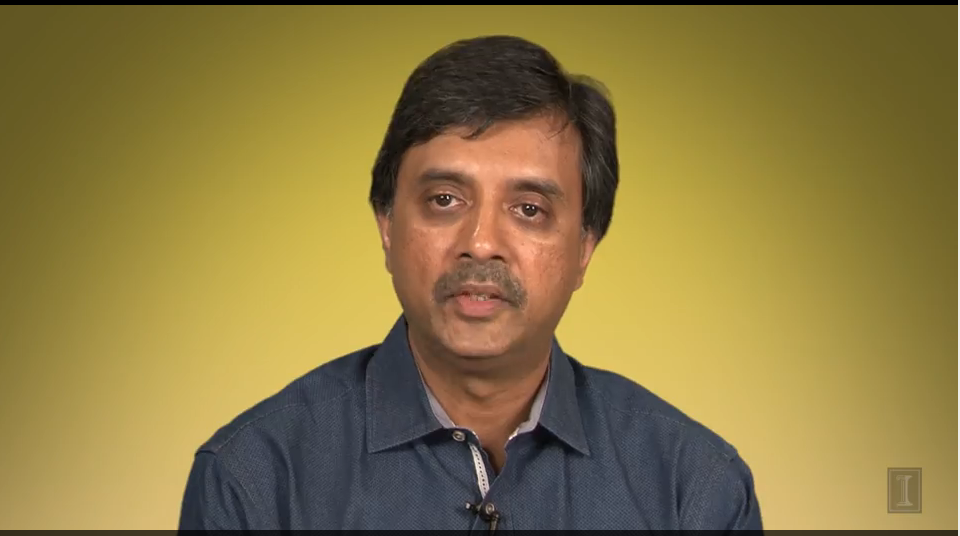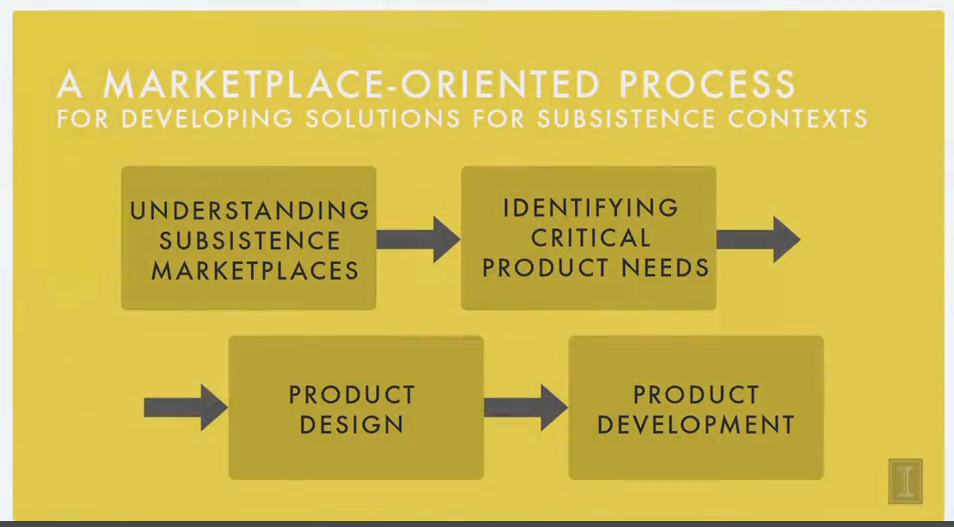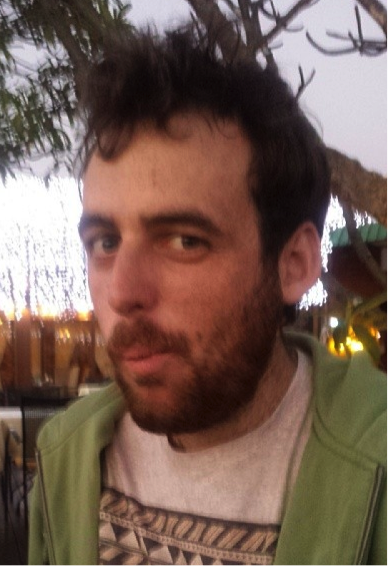by Laurie Pickard | Feb 15, 2014 | Courses, Platforms, and Profs
As I’ve mentioned previously, my goal in taking MBA courses is not to go into finance or consulting. Rather, I want to build skills that are relevant to the international development work I am already doing, and eventually to move from public sector development work to related work in the private sector. I am currently taking a course that is a great bridge between these two, aptly titled Subsistence Marketplaces.

Subsistence Marketplaces Professor Madhu Viswanathan
What I like about Subsistence Marketplaces is the difference in approach from previous courses I have taken on development, both in undergraduate and graduate school. This course looks at the markets that exist in places where much of people’s daily activity is about survival. It doesn’t ask why people are poor or analyze the interventions foreign governments have undertaken to help them; it doesn’t look at the history of poverty and development. Not that these more traditional approaches to studying poverty and development aren’t important, but it is refreshing to look at a subject I know well from a different angle.
In Subsistence Marketplaces we are trying to get inside the minds of poor consumers, understand their lived experience, observe how they operate in the marketplace and from there, design products to serve their market. I’ve seen this type of analysis before – in How to Build a Startup, where I learned the importance of mapping out “A Day in the Life” of your intended customer. This exercise helps to identify the daily frustrations the consumer experiences and the types of innovation that could result in a marketable product. For consumers living in poverty, it helps to understand the reasons – and there is always a reason - for behaviors that may not at first make sense to an outsider. For example, why buy from a store that charges higher prices? (Answer: it’s run by a neighbor who gives credit.)
 Our ultimate goal in this course is to come up with a product that could be marketed to the mass of poor people who constitute the base of the economic pyramid, otherwise known as the BOP. In recent years some interesting solutions for BOP consumers have gotten a lot of attention, for example M-Pesa (mobile phone-based banking for the poor) and microfinance (credit and savings for the poor).
Our ultimate goal in this course is to come up with a product that could be marketed to the mass of poor people who constitute the base of the economic pyramid, otherwise known as the BOP. In recent years some interesting solutions for BOP consumers have gotten a lot of attention, for example M-Pesa (mobile phone-based banking for the poor) and microfinance (credit and savings for the poor).
Coming up with a product for the BOP is easier said than done. As any Peace Corps volunteer can tell you, poor people are experts at navigating their environments, and just because a new way of doing things sounds like a good idea to you – organic gardening, say – doesn’t mean people will rush to adopt it once you’ve told them the good news. You may have overlooked the voracious leaf-cutter ants that flout any attempt short of noxious pesticides at controlling their apetites, or any number of other impediments to adopting a new technology. The same goes for any product or intervention aimed that the BOP market; business people and development professionals alike can benefit from a rigorous analysis of their product/intervention’s value proposition within the context of the lives of the people they are trying to serve.
In product development, once you have developed an understanding of the lives of your customers, you move on to identify some of their most salient needs. From there, you pick a need that you think you can address with an innovative solution. Sounds simple enough, but it’s tough to come up with an innovation so useful that poor people will be willing to part with scarce money. I’m not sure if I’ll hit on anything brilliant by the time it’s due - so far, I haven’t managed to come up with anything that doesn’t already exist in the BOP market – but the assignment has got me scouting marketable solutions.
by Laurie Pickard | Feb 8, 2014 | Courses, Platforms, and Profs
I’ve started reviewing my courses on the website Poets and Quants. You can see the first one at: http://poetsandquants.com/2014/02/06/the-best-mooc-for-entrepreneurs/. I’ll be doing these reviews about once a month, so stay tuned for more!
by Laurie Pickard | Feb 2, 2014 | Community and Networking
Last week, I put out a call for others like myself who are using MOOCs to do the equivalent of a complete MBA. I received responses from all corners of the globe – from Boston to Dubai. Allow me to introduce four fascinating people who are taking advantage of free online resources to reach their educational and career goals.
 Name: Brian
Name: Brian
Age: 27
Lives in: Boston, MA
“Currently, I work as a tax lawyer for an accounting firm in Boston. I am committed to completing a MOOC MBA because, after completing a BA in English (what do you do…), a J.D., and a Tax LL.M., I have some gaps in my financial and quantitative education. I would like to use MOOC courses to expand my knowledge, encourage my intellectual curiosity, and develop skills to add value to my firm’s clients. After finishing my MBA coursework, I hope to transition into higher-level management while maintaining a strong focus in tax and finance.”
Has completed the following coursework:
- Introduction to Finance
- Gamification
- Grow to Greatness: Smart Growth for Private Businesses, Part II
- Global Business of Sports
Currently enrolled in:
- The Power of Microeconomics
- The Power of Macroeconomics
- Foundations of Business Strategy
- Critical Perspectives of Management
- Grow to Greatness: Smart Growth for Private Businesses, Part I
“I think continued education and lifelong learning is the key to success in whatever you choose to do. Intellectual curiosity allows you to realize when to ask questions and what questions to ask. I would encourage everyone to use the structure from MOOCs to pursue one’s passions. For me, I am passionate about financial education, literacy, tax, finance, and educational reform. I hope to use my knowledge and experiences to support others who wish to create change through their own businesses and financial pursuits.”

Name: Kathy Hilsinger Walliser
Age: 62
Lives in: Greensboro, NC
“I am writing a PhD dissertation on Schistosomiasis, a neglected tropical parasitic disease. I have developed a range of preventatives. So, I needed to find out how to set up a corporation to make this and distribute it to the 700 million people at risk worldwide. Answer: open course MBA.”
Kathy’s goal is to eradicate Schistosomiasis from humankind, just as Smallpox and certain types of Polio have been eradicated.
Currently enrolled in:
- Introduction to Corporate Finance by Dr. Franklin Allen, The Wharton School.
“I tell people that NOW they can do it. There is a world of knowledge out there and with the courses, texts, lectures, and background reading, it can all come together. MANY subjects, languages, interests; there is something that they can pursue.”
 Name: Penelope Perez
Name: Penelope Perez
Country of origin: Mexico
Lives in: Dubai, UAE
Penelope works as an account manager in the advertising industry. Her reason for doing a No-Pay MBA is,
“ to acquire the necessary tools to start my own business. I’m passionate about Social Innovation, so I would like to apply all the knowledge and experience to my own business and become an active agent of positive social change.”
Currently enrolled in:
- Foundations of Business Strategy (University of Virginia via Coursera)
- Critical Perspectives on Management (IE Business School of Madrid via Coursera)
“I’m really happy to have found accessible ways to get high quality education by MOOC. I’m happy and feel lucky to be part of this project (The No-Pay MBA), and I realize there are plenty of people determined to continue learning, each for different reasons. The most important thing is that people see beyond the economic/time restrictions and try their best to accomplish their goals.”
 Name: Greg Widders
Name: Greg Widders
Age: 23
Country of origin: Australia
Lives in: Sydney, Australia
Greg works as a Digital Marketing Coordinator for a large windows and doors manufacturer across Australia and parts of Asia.
“Going through University completing a Bachelor’s degree in Industrial Design I felt completely flat about learning. I wanted to get out, get a job, work during work hours and then go home and just do nothing! Not a year into work, I’ve taken a sidestep into marketing and I have secured my first promotion to a position where I am learning on the job. I have been completely reinvigorated! I work longer than I need to, and then when I get home I find myself searching tutorials to help me at work or develop another skill further. I want to complete a MOOC MBA because it gives direction to this drive. I also want the flexibility to change my study load at the drop of a hat without consequence. I’m at a point in my life where some interesting things are on the horizon and I feel locking myself into the structure of a full MBA is not right for me at this moment in time. Another point is that more and more I’m discovering it’s not the degree that impresses bosses, it’s a demonstration of a willingness to learn. Image going into a job interview and saying, ‘I completed my bachelor’s degree and then over the next two/three years I completed the equivalent of an MBA through online courses from the likes of Wharton, Yale, Harvard while working full time.’ I think that shows a willingness to learn.”
Currently enrolled in (all from Coursera):
- Foundations of Business Strategy
- Developing Innovative Ideas for New Companies: The First Step in Entrepreneurship
- Introduction to Finance
by Laurie Pickard | Jan 25, 2014 | Community and Networking

In a previous post I made an offer to others working on a No-Pay MBA. I said that if you reached out to me I would profile you on my blog. I’d like to formalize my offer, as I’ve since received many comments from people who are or have started working on MBA courses via MOOC. I’m excited that so many people have been inspired to try out the whole MOOC thing. But for the purposes of this post, I’m looking for people who are going for the whole enchilada, not just a few courses. That’s right.
It’s recruitment time for the No-Pay MBA.
 I am looking for a few strong candidates to showcase on my blog.
I am looking for a few strong candidates to showcase on my blog.
In order to be eligible you must be committed to taking a full series of MBA courses via MOOC.
Ideally, you will have already taken several business courses and will be registered for or have plans to take more.
You will be willing to make a public commitment to reaching your goal. We all know that MOOC completion rates are abysmal. Making public your intention to finish not just one, but many courses can be extremely valuable in maintaining motivation. Going public is also a way to start building a network of people who recognize the value of your self-administered education.
If you are interested in being featured on this blog, please write to me at laurie@nopaymba.com. In your message, include the following:
-
- Your name, age, city and country of origin, and where you are currently living
- Your current job or field
- Why you decided to do a MOOC MBA
- Your career goals after finishing your MBA coursework
- Courses you are currently taking or have taken
- Any other thoughts you would like to share with readers
- A small picture of yourself
Finally, I would like to mention that this is a standing offer. You may be thinking about doing a No-Pay MBA but not yet have started. In that case, bookmark this page and come back to it when you are ready to officially begin.
by Laurie Pickard | Jan 21, 2014 | Thoughts on Higher Ed and Life
 Since an article about the No-Pay MBA went viral on LinkedIn, I have received an overwhelming response to my project. The LinkedIn article was viewed over 350,000 times (and counting) and shared over ten thousand times. Over 700 comments were posted on it.
Since an article about the No-Pay MBA went viral on LinkedIn, I have received an overwhelming response to my project. The LinkedIn article was viewed over 350,000 times (and counting) and shared over ten thousand times. Over 700 comments were posted on it.
I want to say thank you to all those who have reached out to me. In the past week, I have received hundreds of contact requests on LinkedIn, dozens of comments on my blog, a slew of shout-outs on Twitter, and many new subscribers to the No-Pay MBA newsletter. While many of the comments on the LinkedIn article were skeptical, everyone who reached out to me directly was enthusiastic about the potential of this method of learning. Your support has been overwhelming and inspiring.
Unfortunately, in order to respond individually to everyone who contacted me, I would probably have to quit my job, so please don’t be offended if I don’t reply to you with a personal message. I’ve tried to be transparent about what I’m doing, so most of the questions I’ve been asked in personal messages are answered on the blog (e.g. What courses are you taking? How did you decide which courses to take? Are you getting credit towards a regular degree? Don’t you think you’re missing out on the MBA network?)
If you’ve read through the blog and still have questions, I encourage you to post them publicly as comments on the blog so that I can respond in a way that benefits other readers who might have similar questions. And please keep the feedback and suggestions coming! I also encourage you to chime in on any of the online discussions that are taking place around this concept. Even though not everyone is convinced that the No-Pay MBA is the wave of the future, I’m thrilled to have sparked such a lively discussion.
Finally, I’d like to share a few of my favorite comments and exchanges inspired by the article:
On the LinkedIn post:
“Depending on where she applies for her next job, I’m sure some employers will be impressed by her resourcefulness if she actually completes it - this is the stuff cover letters are made of. If her actual skills/knowledge is put in question, employers can do what they do with every other employee and administer some kind of test or pepper the interview with intentional questions about her knowledge.”
“True, she won’t be receiving any accredited degree but she will be showing that she completed the same course load as an accredited MBA which to me shows some ingenuity in the method of receiving the education. Isn’t this an example of what true forward thinking corporations want in an employee that thinks outside the box? Sure, not every firm is going to see this as an MBA equivalent or even a smart approach, but those are probably the firms that sort candidates based on where the candidate went to school without even evaluating the candidate’s potential, etc. This is also not the same as just reading some books. These are college level courses taught by tenured professors with testing in some cases. The only issue for a potential employer is of course verifying the validity of a MOOC MBA but I imagine at least for the foreseeable future there will not be a tremendous amount of them so to take a chance on a person won’t be a big deal. Plus, MBA level people already have an extensive work history at this point in their careers.”
On a related Poets and Quants article:
“Commenter1: This is awesome! Just curious, how would you list this on a resume? What ethical guidelines are there for listing yourself as an MBA from a MOOC?
“Commenter 2: Here’s how I see it: You would include a one-page overview of your MBA studies, listings the courses you’ve taken, the schools that sponsored them, the dates you completed them, and the grades you’ve received. You would divide the courses up by “core courses” and “elective courses.” And you would say you did what no mainstream MBA has ever done: Taken a full load of MBA courses on your own which demonstrated self-discipline, a thirst for learning, and the hard work to see it all through–and you are smart enough to get your MBA for free, saving yourself more than a quarter of a million dollars in tuition, school fees, and opportunity costs. What’s more, you will have gotten it by studying with professors from the world’s best business schools: Wharton, Yale, Stanford, Virginia, Northwestern, etc. You will even be able to say you took a course from a recent Nobel Prize winner, Robert Shiller of Yale, whose course on financial markets is coming out this February.
“Now this isn’t going to work at a McKinsey or Bain, but I think it would impress most employers greatly and make a difference in your employment prospects. And if you are able to pull this off you will have learned everything an MBA at Harvard or Chicago will have learned. You won’t have the network or the ideal sequence of learning that is part of a highly organized, lockstep MBA program. But it’s free!”
On my most recent blog post:
“Folks can debate till the end of time on how effective MOOCs can be w/o a stamp or piece of paper, but in the end, it’s the ones devoted to learning and building something useful out of it that will create the learning structure they need and come out with a story to tell on a resume or interview, and no one says networking is limited to B-school.
“Besides, by the time traditionalist MBA kids are done forking over $100k and polishing their resumes for jobs, you’ll be ready to apply what you’ve learned and start hiring them.
“Thanks for choosing to be so open to share your experiences; I’m on a similar path (science oriented), but am happily learning more now than I have in years. Onwards!”
 Our ultimate goal in this course is to come up with a product that could be marketed to the mass of poor people who constitute the base of the economic pyramid, otherwise known as the BOP. In recent years some interesting solutions for BOP consumers have gotten a lot of attention, for example M-Pesa (mobile phone-based banking for the poor) and microfinance (credit and savings for the poor).
Our ultimate goal in this course is to come up with a product that could be marketed to the mass of poor people who constitute the base of the economic pyramid, otherwise known as the BOP. In recent years some interesting solutions for BOP consumers have gotten a lot of attention, for example M-Pesa (mobile phone-based banking for the poor) and microfinance (credit and savings for the poor).










